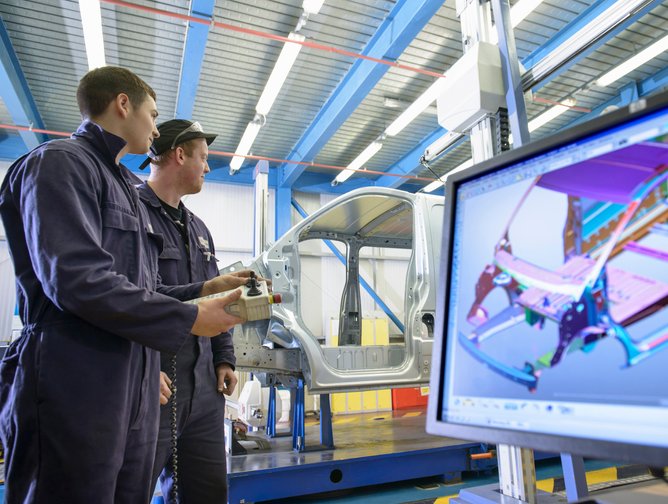
Lee Fosbrook
Partner at Eviden

In the area of smart manufacturing, companies need to enhance how they develop new products, orchestrate their supply chains, run their factories and serve their customers. This is where Eviden steps in, acting as a trusted advisor and providing support through the full lifecycle from consulting assessments to develop the strategy, roadmap and business case, through technology design and delivery, as well as on-going support and expert advisory.
Based in Bezons, France, Eviden is a leader in data-driven, secure and sustainable digital transformation with a strong and growing portfolio and comprehensive partner ecosystem. The company formed as a carve out from Atos and brings together the consulting, digital, big data, advanced computing and AI and security divisions of Atos and is set to become a fully independent company in 2024. The company helps clients across both private and public sectors worldwide develop new capabilities to achieve and sustain better performance. Eviden currently operates in 47 countries with over 57,000 people and has an annual revenue of c.€5bn.
Lee Fosbrook is a Partner at Eviden, in the Industry360 consulting and advisory practice, where he brings over 30 years’ experience in business performance improvement and digital transformation on an international scale.
“My role involves collaborating with our clients to help them achieve and sustain better performance and leverage the possibilities of digital transformation in their manufacturing operations and extended value chains,” he said. “In our Industry360 team we specifically work with companies who design, manufacture, assemble and maintain products and assets and operate the supporting supply chains. My team collaborates with clients across a broad set of industries including aerospace and defence, consumer products, automotive, pharmaceuticals, engineering and chemicals.”
Eviden helps its clients to identify how they can tackle their key business and operational challenges. This often starts with a consulting assessment to develop a strategy and transformation roadmap, progresses into support to implement pilot projects and then scaling these across their operations network to maximise the impact and return on investment.
The challenges of manufacturing
Manufacturers around the world currently face skills shortages, cybersecurity threats and the need to demonstrate sustainable and responsible operations. The challenges Eviden sees affecting most manufacturing companies it works with are:
Rising input costs
The increasing cost of materials, commodities, energy, fuel, and labour rates is squeezing manufacturer margins where these additional costs cannot easily be passed on.
Market and supply chain volatility
It is getting increasingly difficult to predict the impact of events that directly affect customer demand and supply availability (e.g the COVID-19 pandemic, regional conflict, severe adverse weather patterns and natural disasters).
Spiralling supply chain complexity
The pursuit of lower costs has lengthened global supply chains introducing longer lead-times and associated risk; and the evolution of supply chain partner ecosystems has also added a layer of complexity to planning and execution processes involving multiple external parties.
“In response, leading companies are developing smart manufacturing capabilities to address these challenges head-on to become leaner, more responsive to change and more resilient,” said Fosbrook. “It is working – research has shown that companies investing in smart manufacturing capabilities typically achieve a 26% higher level of profitability than their peers. At Eviden, we have helped our clients realise and sustain impressive improvements including a 30% increase in throughput and a 50% percent reduction in unplanned equipment downtime.”
Eviden has a growing list of examples where it has first-hand experience of designing and implementing innovative yet highly practical solutions to enhance the smart manufacturing capabilities of the clients it partners with.
“In the product design and development area we have enabled teams to collaborate on 3D digital designs with partners in real time, using simulation tools to accelerate testing of digital rather than physical prototypes,” said Fosbrook. “In demand planning we have used external data sources to better predict demand and improve forecast accuracy, reducing inventory, product write-downs and missed sales opportunities.”
Read the full story HERE.
Make sure you check out the latest edition of AI Magazine and also sign up to our global conference series - Tech & AI LIVE 2024
**************
AI Magazine is a BizClik brand


- Pick N Pay’s Leon Van Niekerk: Evaluating Enterprise AIData & Analytics
- Should Tech Leaders be Concerned About the Power of AI?Technology
- Microsoft in Japan: Investing in AI Skills to Boost FutureCloud & Infrastructure
- EU AI Act: Regulating Tech's Future as World-First Laws PassAI Strategy





